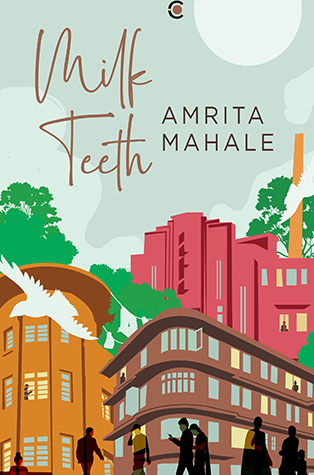Rating: 5/5
A few chapters into Amrita Mahale’s Milk Teeth, you are caught between the urge to race through the book and the need to ration your reading for fear of finishing it too soon. It isn’t often that a debutante delivers such a deeply immersive story, that too in a voice so rich and nuanced.
Milk Teeth begins like a light hearted rom-com, introducing you to childhood friends, Ira and Kartik, co-habitants of a modest residential building in Matunga. Gradually, though, the plot gathers gravitas, delving into tempestuous relationships, unearthing dark secrets, throwing moral predicaments your way – all against the throbbing, immutable spirit of a city that’s become many a writer’s muse – Bombay!
The story strolls through the city’s palatial structures, dives into its underbelly and emerges to reaffirm the multitude of contradictions, the plurality that is woven so inextricably into its identity. Each character offers a different lens to view the same city through. Ira’s job as a journalist on the civic beat keeps her firmly rooted to reality- to the chaos of local train commute, to the woes of domestic drudgery, to the effort that just keeping one’s head above water (quite literally, sometimes) could demand, in a city like Mumbai.
It is no wonder then that she is drawn to the erudite Kaiz. With his incisive eye for the city’s landscape, fascination for its architecture and ability to place it in a historical context, he is at once a culmination of her intellectual aspirations and a mirror to her insecurities. Kartik, on the other hand, is the most conflicted character in this story. While he enjoys a position of brazen privilege in some walks of life, another part of his world is in absolute tumult. His constant inward tussle to ward off the inevitable is starkly contrasted by his indifference to rein in situations that are in fact in his control.
The real conflict, however, is stirred by the depth of Mahale’s writing, for even as her characters clash, falter, raise hackles, you struggle to choose sides; that is the extent to which you are able to empathise with each of their individual lives and stories.
With this debut novel, Amrita Mahale has set the bar ridiculously high – not just for her own self, but for every other contemporary author aspiring to write Fiction.
-Mitali Bapat
Image Courtesy: www.amazon.in


